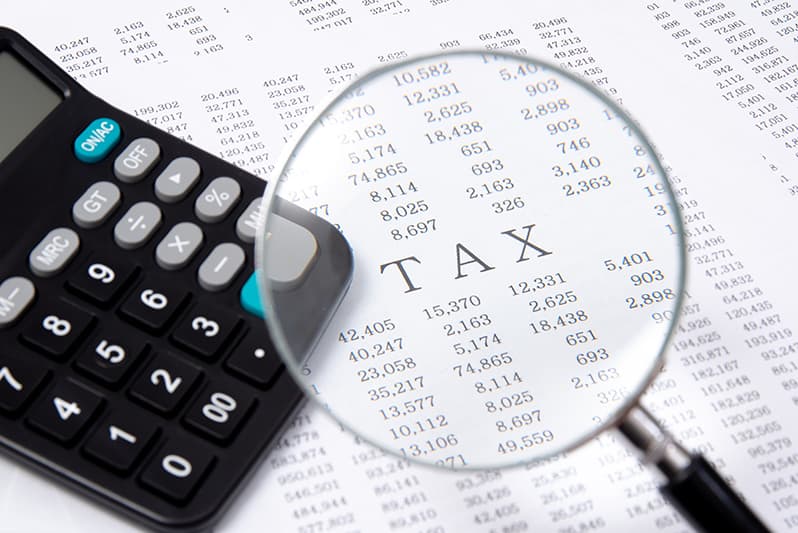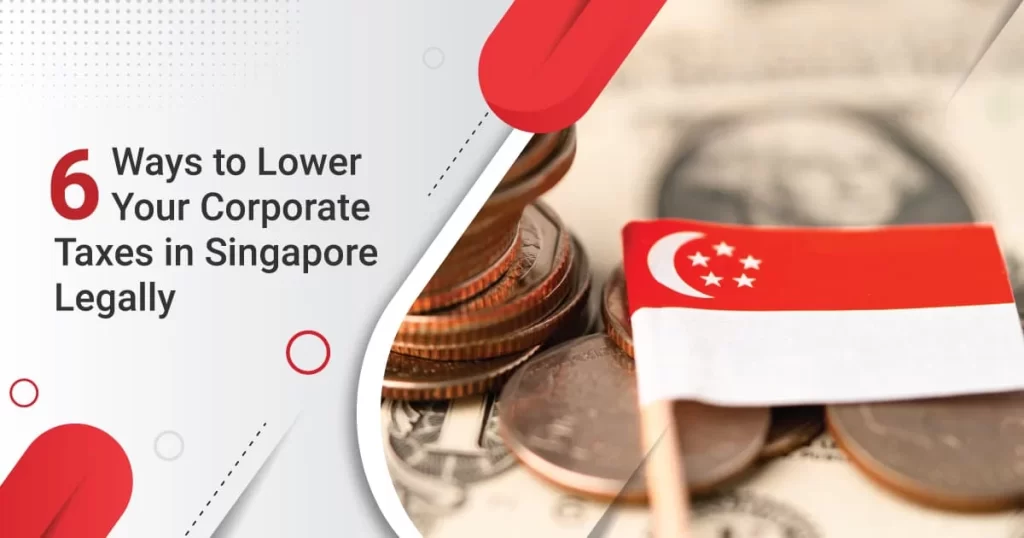In this article, we look at the Lion City, one of the best places to do business in the world, and how its corporate taxes are encouraging companies to do so.
Does Singapore Have Low Corporate Taxes?
Yes, Singapore has low corporate taxes when compared to other countries like Puerto Rico (37.5%) and Brazil (34%). The corporate tax rate in Singapore is 17%.
Is Singapore a Corporate Tax Heaven?
The low corporate tax rate and tax schemes that help to reduce the sum of corporate taxes payable make Singapore an attractive tax haven for businesses worldwide.Related Read: Singapore Budget 2022: Key Insights on Taxation »
How Do I Calculate Corporate Taxes in Singapore?
 The calculation of corporate taxes in Singapore is relatively straightforward. The basic formula is:
Corporate Tax = Income Taxable x Corporate Tax Rate
The income taxable is the amount of income that is subject to corporate tax, while the corporate tax rate is the percentage of tax that is levied on this income.
There are a few exceptions to this rule. However, for the most part, this formula will give you a good idea of how much corporate tax you will need to pay.
Alternatively, you can use our handy corporate tax calculator to find out the amount of taxes you need to pay quickly.
You should also consult with a qualified tax advisor to determine exactly how much corporate tax you will need to pay if you are unsure.
The calculation of corporate taxes in Singapore is relatively straightforward. The basic formula is:
Corporate Tax = Income Taxable x Corporate Tax Rate
The income taxable is the amount of income that is subject to corporate tax, while the corporate tax rate is the percentage of tax that is levied on this income.
There are a few exceptions to this rule. However, for the most part, this formula will give you a good idea of how much corporate tax you will need to pay.
Alternatively, you can use our handy corporate tax calculator to find out the amount of taxes you need to pay quickly.
You should also consult with a qualified tax advisor to determine exactly how much corporate tax you will need to pay if you are unsure.
Engage a Taxation Specialist
What Are the Benefits of Lower Corporate Taxes?
A lower corporate income tax can benefit a company by reducing the amount of taxes that they have to pay on their profits. This can leave the company with more money to invest in their business and grow their operations. Here are more advantages of reduced corporate taxes, which lead to a lower tax burden for companies:- Makes a country more attractive to businesses and may lead to an increase in foreign investment
- Leads to an increase in economic growth and creates jobs
- Makes a country more competitive globally
- Results in increased innovation and productivity
Related Read: All You Need to Know About the Tax Treatment for VCCs »
How Do I Reduce Corporate Taxes in Singapore Legally?
Despite Singapore’s low corporate tax rate, some companies may seek to reduce their tax obligations further. For example, they can make use of industry-specific and special tax incentives and concessionary tax rates under the Singapore Income Tax Act.It is also possible to lower your corporate tax return legally with the help of these measures:
Tax Exemption Schemes and Incentives
You can benefit from an applicable corporate income tax exemption scheme or incentive available in Singapore that can further reduce your corporate taxes. The most common way to reduce corporate taxes is by claiming deductions and exemptions. Deductions lower your taxable income while exemptions completely exclude certain income from being taxed. Over the years, Singapore has introduced many tax exemptions and deductions, like the Corporate Income Tax Rebate in YA 2020. There are many incentives and exemptions available in Singapore launched by the government and the Economic Development Board (EDB). Some of the most common ones are:- Investment Allowances
- Foreign Branch Profits Remission Scheme
- Development and Expansion Incentive
- International Headquarters Incentive
- Research and Development Incentive
- Double Tax Deduction for Internationalisation Scheme (DTDi)
- Pioneer Certificate Incentive
Exemptions On Foreign-Sourced Income for Tax Relief
Income obtained from outside of Singapore is considered foreign-sourced income and is usually taxable. Foreign income is also typically taxed twice, the first in the foreign jurisdiction and the second in Singapore, which is called double taxation. The Avoidance of Double Tax Agreement (DTA) is a scheme available for Singapore tax resident companies to claim benefits. Singapore resident companies can also get tax exemption on foreign-sourced income remitted into the country that is specified if it falls under these 3 categories:- Foreign-sourced dividend
- Foreign-sourced service income
- Foreign branch profits
Apart from the DTA, you can also opt for transfer pricing arrangements or set up a business subsidiary or branch in Singapore for tax relief.
Tax Exemption for Startups
The Tax Exemption Scheme for New Start-Up Companies was initiated in the Year of Assessment (YA) 2005. It aims to provide support to entrepreneurs and develop local businesses. It was last revised in YA 2020, with the current tax exemptions for eligible firms for their first 3 consecutive YAs being:- A 75% exemption on the first S$100,000 of regular chargeable income, and
- An additional 50% exemption on the next S$100,000 of regular chargeable income
- Businesses with the principal activity of investment holding
- Firms that take on property development for either sale or investment, or both
- Be incorporated in Singapore
- Be a Singapore tax resident for that YA
- Have total share capital managed by a maximum of 20 shareholders throughout the basis period for that YA, and
-
- The shareholders must be individuals, or
- At least 1 is an individual holding a minimum of 10% of the ordinary shares issued
Partial Tax Exemption
From YA 2020 onwards, businesses can get the Partial Tax Exemption for Companies (PTE) if they are not eligible for the tax exemption for new startups.The PTE offers a maximum of S$152,500 in exemptions for each YA.
Contributing to Your Employees’ MediSave
The Additional MediSave Contributions Scheme (AMCS) is one way for employees to reduce their corporate taxes. Under this scheme, companies can make MediSave contributions of up to S$2,730 per employee per year. These contributions are tax-free for employees and employers may also gain relevant tax benefits.For example, the Portable Medical Benefits Scheme (PMBS) may apply, which gives companies a 2% tax deduction limit for an employee’s pay, instead of just 1%.
Opening a New Startup With Separate Business Functions
New startups can use the Tax Exemption Scheme for New Start-Up Companies to reduce their tax liabilities. You can divide your business functions into different firms instead of putting them in one single entity. Note that you should not be abusing this scheme, but using it for business and commercial reasons.A Professional Tax Advisor Can Offer You the Best Solutions to Save on Your Corporate Taxes
You can engage a taxation expert to help you if you are still uncertain about the best ways to reduce your corporate income taxes in Singapore. Your professional advisor will offer you valuable advice and solutions to tak. They can also help you manage other taxation aspects, like filing your corporate income tax returns and estimated chargeable income (ECI). Let InCorp’s taxation experts manage your taxation matters and stay compliant with local rules and regulations!Contact our team
FAQs in Reducing your Corporate Taxes
What are corporate taxes?
- Corporate taxes are taxes that businesses must pay on their profits.
What is the corporate income tax rate in Singapore?
- The rate of corporate tax in Singapore is 17%, based on the prevailing rate on Dec 2022.
How does corporate tax work in Singapore?
- The corporate tax rate of 17% is applied to profits and not revenue, subject to any applicable exemptions or rebates.



